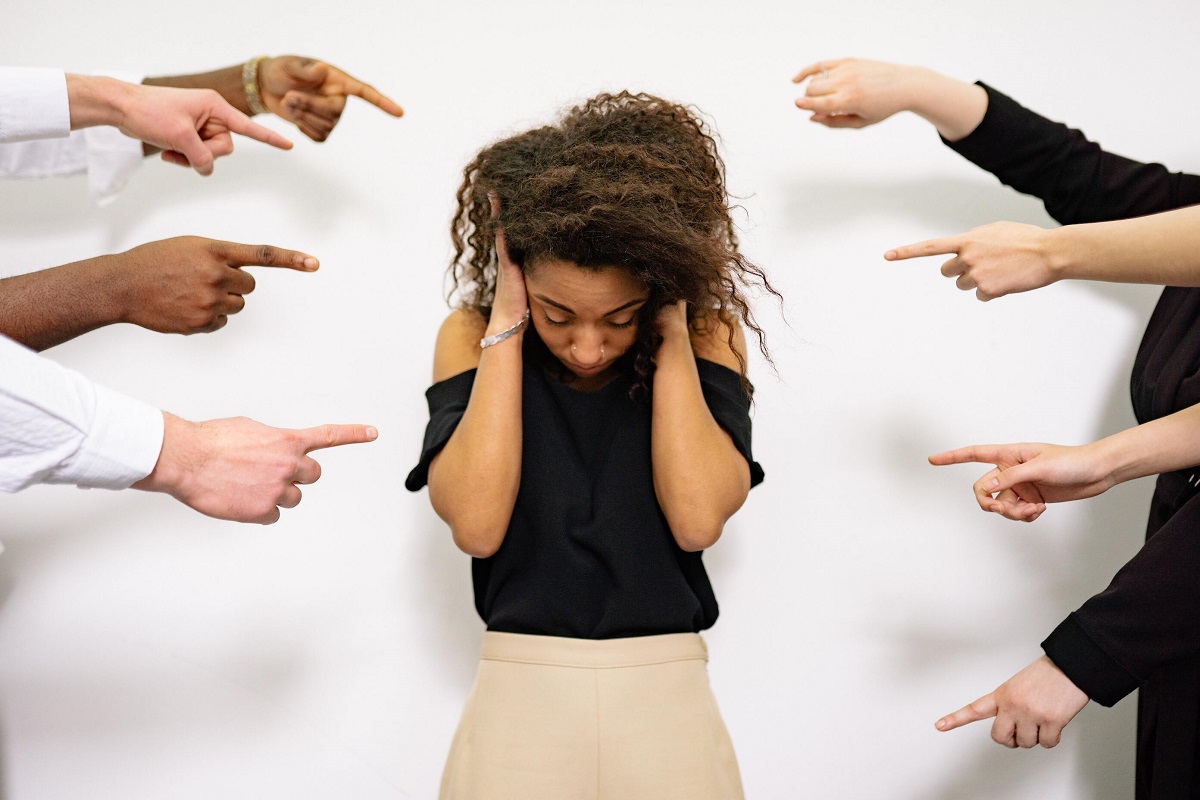How to Stop Reacting Irrationally? Before we proceed with this blog post, I would like to explain the word “irrational.” in a layman’s understanding. In psychology, irrationality is the inability to think or act logically. This includes incorrect conclusions, beliefs, and judgments. However, everyday usage simply means “not thinking clearly.”
When we react irrationally, our emotions often get the best of us. We may say or do things that we later regret. Our reactions may be based on assumptions rather than facts, and we may not take other people’s feelings into account.
There are numerous reasons why people may react irrationally. For instance, a person may be overwhelmed with emotions and lash out in response. Alternatively, a person may act impulsively without thinking things through. In some cases, a person may make poor decisions based on faulty information or assumptions.
Regardless of why someone reacts irrationally, the result is always negative. Not only can irrational reactions lead to heated arguments or physical confrontations, but they can also damage relationships and destroy lives.
So, what are the causes of irrational reactions?

There are many different causes of irrational reactions, but some of the most 20 factors include:
1. Emotional overload: When we’re feeling overwhelmed by our emotions, it can be challenging to reason. This is especially true if the emotions are negative, such as anger, sadness, or fear.
2. Fear: Sometimes, we react irrationally out of fear. For example, we may be scared of losing control or being rejected by others.
3. Anger: Anger is a powerful emotion that often causes people to act impulsively and unreasonably.
4. Hurt: When we’re hurt emotionally, it’s often difficult to think clearly or act rationally. We may lash out at the person who hurt us to protect ourselves.
5. Shame: Shame is a very painful emotion that can cause people to act in irrational ways. For example, we may try to hide our shame from others or lash out in an attempt to regain control.
6. Defensiveness: We often react irrationally when we feel our beliefs or opinions are being attacked. We may become defensive and attack the other person instead of listening to what they have to say.
7. Low self-esteem: People who have low self-esteem often react irrationally to protect their fragile egos. They may feel that they aren’t good enough or need to be perfect.
8. Grief: Grief is a powerful emotion that can cause people to act irrationally for an extended period. We may be so overwhelmed with sadness that we can’t think straight.
9. Isolation: When we feel lonely or isolated, it can be challenging to reason. This is especially true if we’re feeling unsupported by others.
10. Uncertainty: Uncertainty can cause people to feel anxious and scared. This can lead to irrational reactions as we try to control things out of our control.
11. Reacting to adrenaline: Adrenaline is a hormone released when we’re in danger or under stress. It can cause us to react impulsively and without thinking things through.
12. Impulsiveness: Impulsive People often react irrationally. They may act without thinking about the consequences of their actions.
13. Emotional vulnerability: Emotionally vulnerable People often react irrationally. This is because they’re more sensitive to their emotions and have a more challenging time dealing with them.
14. Substance abuse: Substance abuse can lead to irrational reactions as someone becomes addicted to drugs or alcohol.

15. Stress: Chronically, high-stress levels can lead to irrational reactions as our minds become overwhelmed.
16. Invalidation: When we feel that our feelings or opinions aren’t valid, we may react irrationally to prove that we’re right.
17. Perfectionism: People who are perfectionists often react irrationally when they make a mistake. This is because they feel like they’re not good enough.
18. Trauma: Traumatic experiences can cause people to react irrationally to protect themselves from further harm.
19. Reacting to change: Change can be stressful, and it can often lead to irrational reactions as we try to adjust to the new situation.
20. Genetics: Some people may be more prone to reacting irrationally due to their genes. This means that it’s something that runs in their family.
And how can we overcome these factors?
We can do many things to overcome the factors that lead to irrational reactions. Here are the most effective strategies:
1. Self-awareness: The first step is to be aware of the situations or emotions that tend to lead to irrational reactions. This way, we can be prepared for them and deal with them more effectively.
2. Identify your triggers: Once you know what your triggers are, you can work on avoiding or managing them. For example, if being around certain people leads to anger, try to stay away from those people as much as possible.
3. Take a step back: When we’re feeling emotional, it’s often difficult to reason. In these cases, it’s helpful to take a step back and calm down before responding to the situation.
4. Seek support: It can be helpful to talk to someone about the things causing irrational reactions. This can help us process these feelings and deal with them more healthily.
5. Journal: Keeping a journal can be a great way to track our thoughts and feelings. This can help us identify any patterns or triggers that we may not have otherwise noticed.
6. Exercise: Exercise is a great way to release tension and stress. It can also help improve our moods, reducing the likelihood of irrational reactions.
7. Relaxation techniques: Relaxation techniques like yoga or meditation can help us calm down and focus on the present moment. This can help us to think more clearly and rationally.
8. Positive self-talk: When we’re feeling down or insecure, it’s easy to fall into a negative spiral of thoughts. However, we can break this cycle by replacing these thoughts with positive self-talk.
9. Avoid judgment: It often leads to irrational reactions when we judge others. Instead, try to be understanding and accepting of others, even if you disagree with them.
10. Uncertainty: Uncertainty can be stressful and often challenging to deal with. However, we can reduce our anxiety by accepting that some things are out of our control.
11. Reacting to adrenaline: Adrenaline is a natural response that helps us to protect ourselves from danger. However, we can learn to manage this response by calming down and using positive self-talk.
12. Positive reinforcement: When we do something good, it’s essential to give ourselves positive reinforcement. This can help us to feel good about ourselves and reduce the likelihood of irrational reactions.
13. Rational thinking: We can overcome our irrational reactions by practicing rational thinking. This means taking the time to think things through before responding to a situation.
14. Substance abuse: If substance abuse is causing irrational reactions, then it’s important to get help from a professional. There are many treatments available that can help you manage your addiction.
15. Stress: If stress is causing irrational reactions, then it’s important to find ways to relax and manage your stress levels. Many different techniques can be helpful, such as exercise, yoga, or meditation.
16. Cognitive distortions: We often fall into cognitive distortions when feeling emotional. These are irrational thoughts that can lead to negative feelings and irrational reactions.
17. Social media: Social media can be a great way to stay connected with friends and family, but it can also be a source of stress. It’s essential to be aware of the amount of time we’re spending on social media and to take breaks when necessary.
18. Negative self-talk: Like judging others, negative self-talk can lead to irrational reactions. It’s essential to replace these thoughts with positive self-talk to reduce stress and anxiety.
19. Perfectionism: perfectionism is another common cause of irrational reactions. It can be challenging to deal with the pressure of perfectionism, but many helpful strategies can assist us.
20. Procrastination: Procrastination is another common problem that can lead to irrational reactions. When feeling overwhelmed by a task, it’s easy to put it off and avoid it altogether. However, this only leads to more stress and anxiety.
21. Anxiety: If we’re struggling with anxiety. It’s essential to seek out help from a professional and practice relaxation techniques regularly.
22. Anger: Anger is a natural response, but it can often lead to irrational reactions. It’s important to understand our triggers and how to manage our anger healthily.

23. Grief: Grief is a natural response to loss, but it can often be challenging. It’s essential to allow ourselves time to grieve and find support from family and friends.
24. Trauma: If we’ve experienced trauma, it’s often difficult to reason. It’s important to seek professional help and talk about our experiences openly.
25. Depression: Depression is another common cause of irrational reactions. It’s important to get help from a professional and practice self-care regularly.
26. Loneliness: Loneliness can be a source of stress, leading to irrational reactions. It’s essential to reach out to the community and find social activities that we enjoy.
27. Fear: Fear can be a paralyzing emotion, but it’s important to remember that we can overcome our fears. When we’re afraid, it’s often difficult to think rationally.
28. Life changes: Life changes can be stressful and lead to irrational reactions. It’s essential to take time to adjust to new changes and to find support from family and friends.
29. Conflict is a normal part of relationships, but it can often lead to irrational reactions. It’s important to communicate openly with our loved ones and understand their perspective.
30. Change: Change is a natural part of life, but it can often be tricky. It’s important to embrace change and find ways to adapt to new circumstances.
And there are 30 ways in which you can stop reacting irrationally. Remember that it’s essential to seek out help from a professional if you’re struggling with these issues. There are many treatments available that can help you manage your addiction.
In conclusion
How to Stop Reacting Irrationally? It’s important to be aware of how we can react irrationally and take steps to prevent these reactions. Many helpful strategies can assist us in managing our stress and anxiety. It’s essential to be patient with ourselves and to practice self-care regularly. Below, we’ve answered some of the frequently asked questions we received most times. We hope it helps.
FAQs
If I’m irrational, does that mean I’m overreacting?
Not necessarily. Everyone experiences irrational reactions from time to time. However, if you’re reacting irrationally to most situations, it may indicate a more significant problem.
Is there a difference between being emotional and being irrational?
There is a big difference between being emotional and being irrational. Emotional reactions are based on feelings, while irrational reactions are based on faulty logic or assumptions.
Can I control my reactions?
Yes, you can control your reactions. It’s important to remember that you are in control of your thoughts and emotions. You can choose how to react to a situation. If you’re reacting irrationally, try to take a step back and calm down. You may also want to talk to someone about it.
What if I can’t seem to control my reactions?
If you’re having trouble controlling your reactions, it may be helpful to seek professional help. A therapist can help you understand the reasons behind your reactions and can give you the tools to deal with them.
Is there any medication for irrational reactions?
There is no medication specifically for irrational reactions. However, if you’re struggling to control your reactions, your doctor may prescribe medication to help you manage your emotions.
And what if I don’t want to control my reactions?
If you don’t want to control your reactions, that’s OK. However, be aware that your reactions may negatively affect yourself and others. If you’re unable to control your reactions, it may be helpful to seek professional help.
Does failure to control my irrational emotions make me a wrong person?
Failure to control your irrational emotions does not make you the wrong person. Everyone experiences irrational reactions from time to time. However, if you’re reacting irrationally to most situations, it may indicate a more significant problem.



